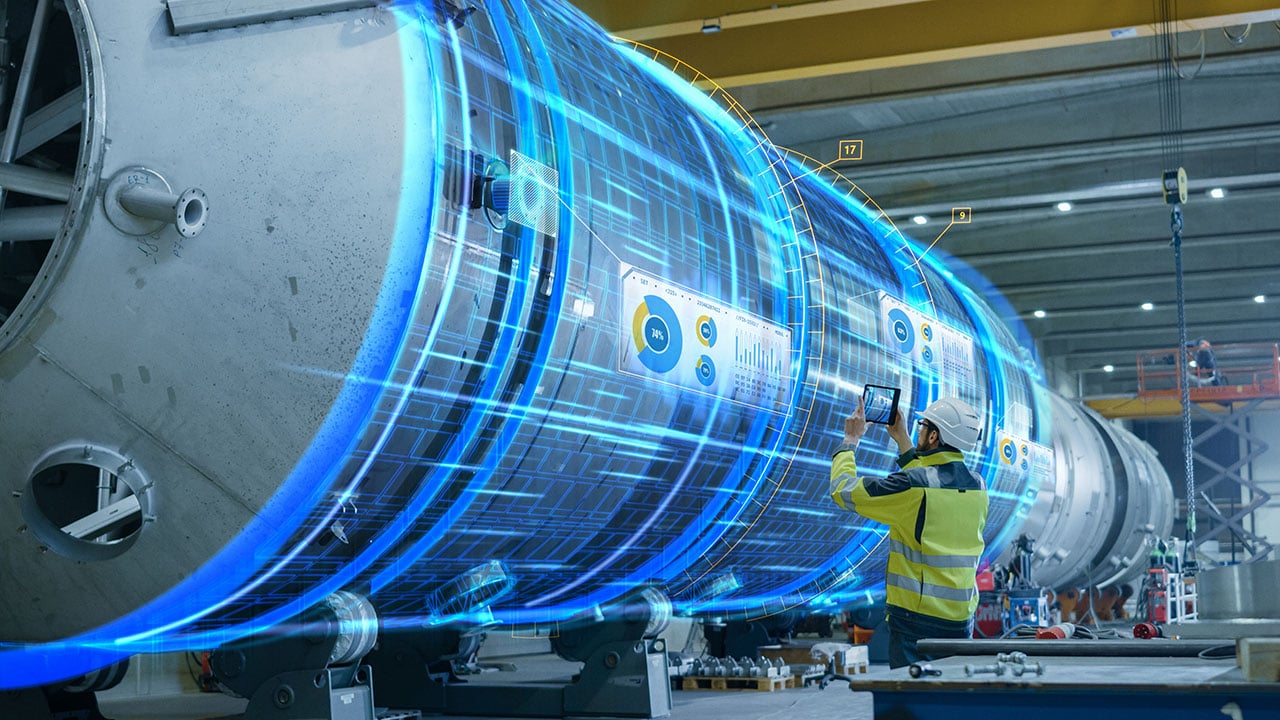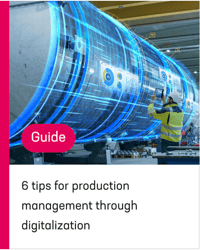 Digitalization of production is a process that aims to collect, analyze and use key production data in a way that makes production more efficient and streamlined. In addition to saving time and money, the benefits of digitalization lead to smoother working practices and, as a result, greater job satisfaction. People play a key role in both the implementation and the benefits of digitalization of production – which is why skillful management is essential to the digitalization process.
Digitalization of production is a process that aims to collect, analyze and use key production data in a way that makes production more efficient and streamlined. In addition to saving time and money, the benefits of digitalization lead to smoother working practices and, as a result, greater job satisfaction. People play a key role in both the implementation and the benefits of digitalization of production – which is why skillful management is essential to the digitalization process.
The digitalization of production is not just about connecting machines to the network, nor is it just about the data that IIoT can provide. Basically, the golden nugget is in what you do with the knowledge you acquire. The fruits of digitizing production are the aggregation of real-time data from different sources and visualization to support decision-making.
Reliable data enabled by digitalization is important, among other things, to ensure that the organization has the best possible picture of the actual production situation, that decisions related to development activities can be made optimally and in a timely manner, and that change and exceptions can be dealt with as efficiently as possible.
As those working in manufacturing organizations know well, changes in orders, products, working practices and management are commonplace. Tailoring of products and shorter delivery times have further reinforced the trend. Therefore, knowledge-based production management requires a shift from reactive to proactive production management – and digitalization has an important role to play here.
The digitalization of production requires effective and determined management at all stages. A management approach is not only required to carry out the digitalization process itself, but also to make effective use of its results.
Good management is needed in the digitalization of production, including:
- In setting the targets of digitalization
The targets must be ambitious but realistic. The targets must be aligned with the company’s overall strategy, and they are ideally supported and understood by the whole organization. - In the introduction and deployment of the operating model
As digitalization of production means a change from previous operating models, it always requires some level of change to the familiar operating models. Hence, digitalization of production requires change management. It is good to discuss with staff at different stages why and how digitalization is being implemented, what it requires of them, and what the reward is at the end of the process. - A journey from data to meanings
Good cooperation between strategic management and the operators responsible for the practical work ensures that data collection is prioritized in a logical and targeted way. However, it is not enough to collect data from machines; operators, for example, have an
important role to play in enriching data: analyzing data and finding meaning requires human effort. Production workers and supervisors have a wealth of knowledge and empirical history that is needed to process the data into a true understanding, and thus decide on development actions.
- Effective use of results
To reap the full benefits of digitalization, everyone needs access to the data that are relevant to their job. If the data are not compiled in a sufficiently visual and user-friendly format, there is a risk that they will not even be used. With good management, digital data flows logically, reliably and in real time from the production machines to the visual form for the end user.
Have you become interested?
Read more about managing digital production by downloading our free guide Six tips for managing production through digitalization. In this guide, we explain how digitalization can help you manage your production, and give you six tips for digitizing your production. We also discuss typical production metrics and ratios, and briefly introduce the Lean six Sigma problem-solving methodology.
Read more:
Blog: What is production optimization and what can it achieve?
Blog: How to succeed in monitoring and measuring production planning
Blog: What is OEE?
Back to the Pinja Blog
Categories
- Career at Pinja (68)
- Manufacturing (46)
- Knowledge Management (45)
- Production Development (44)
- Software Partnership & Tools (42)
- Sustainability (37)
- Wood and Forestry (37)
- Bioenergy and Recycling (29)
- IT Support and Outsourcing (24)
- Ecommerce (23)
- Maintenance (22)
- Artificial Intelligence and Machine Learning (15)
- Public Services (9)
- Compliance (1)

